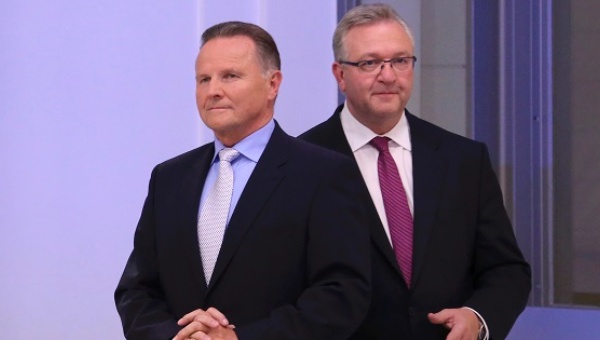-
Tips for becoming a good boxer - November 6, 2020
-
7 expert tips for making your hens night a memorable one - November 6, 2020
-
5 reasons to host your Christmas party on a cruise boat - November 6, 2020
-
What to do when you’re charged with a crime - November 6, 2020
-
Should you get one or multiple dogs? Here’s all you need to know - November 3, 2020
-
A Guide: How to Build Your Very Own Magic Mirror - February 14, 2019
-
Our Top Inspirational Baseball Stars - November 24, 2018
-
Five Tech Tools That Will Help You Turn Your Blog into a Business - November 24, 2018
-
How to Indulge on Vacation without Expanding Your Waist - November 9, 2018
-
5 Strategies for Businesses to Appeal to Today’s Increasingly Mobile-Crazed Customers - November 9, 2018
Merkel’s party suffers rout in Berlin
Mrs Merkel was speaking at a specially arranged press conference to address her Christian Democrat (CDU) party’s disastrous performance in Berlin state elections at the weekend.
Advertisement
In the Berlin election, the right-wing populist Alternative for Germany (AfD) harnessed a wave of anger over the refugee influx to claim around 14 percent of the vote.
AfD leaders were jubilant at the prospect of occupying 25 seats out of 160 in the state parliament of Germany’s capital. German chancellor Merkel’s open-door policy led to the intake for more than a million refugees to Germany, which is now struggling with the assimilation of values.
The result proved that the Alternative for Germany party is not as popular in the cosmopolitan capital as it is elsewhere in Germany, but it managed to draw considerable support, mostly from the eastern districts of the city.
The results have led many German political pundits to estimate that the new Berlin coalition will consist of the Socialists, the Greens and the Left party, an outcome that will likely provide more money for migrants and confirm Berlin as one of the most left-wing cities in Germany.
With the AfD’s strong showing, national party co-chairman Joerg Meuthen said his party was strongly positioned for next year’s national elections.
The Social Democrats and chancellor Angela Merkel’s Christian Democratic Party have emerged from Berlin state elections as the strongest two parties – biut it came amid significant gains for the country’s far-right AfD party.
(AP Photo/Markus Schreiber). Top candidate for the Social Democrats and governing Mayor of Berlin Michael Mueller arrives at the party’s main election event after first results announced in Berlin, Sunday, Sept. 18, 2016.
For too long, Merkel said, she had relied on the Dublin procedure, “which, to put it simply, had taken the problem off Germany’s hands”, adding: “And that was not good”.
The SPD won 22.8 percent of the vote, dropping 5.5 percent, while the CDU won 17.8 percent, down 5.6 percent, ARD public television reported.
The results from the Berlin state election has raised more doubts about whether Europe’s most powerful leader will stand for a fourth term. Merkel’s right-left national coalition, he said, had to win back support by changing course on its refugee policy.
AFD’s State chairman, Georg Pazderski, told supporters that it was the first time in 66 years that a party went zero to double-digits points in Berlin.
Advertisement
“They’re a single-issue party” focused on the refugee crisis, said McAllister, the former Lower Saxony prime minister.





























